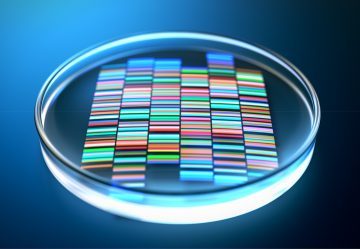Christie Wilcox in Nautilus:
 In their long-running effort to defeat cancer, medical researchers have made a startling discovery: A lot of the time, they have no idea how their anti-cancer drugs work. And, strange as it may sound, that is actually great news for future therapies. “We’re not saying these drugs aren’t good,” explains Ann Lin, a geneticist at Stanford University. They really do kill cancerous cells, often quite well; they just don’t do the job the way that their developers believed, she finds. Her work highlights how much of anticancer drug discovery is still based on trial-and-error searches. It’s as if your auto mechanic learned to fix your car by kicking the fenders and smacking the hood until it started. That technique might get the job done, but there would be no way to improve it or to figure out what went wrong if it failed the next time. Similarly, oncologists have often been forced to rely on drugs without a clear understanding of their mechanism of action, Lin notes; in essence, they were kicking and smacking the tumors at a molecular level.
In their long-running effort to defeat cancer, medical researchers have made a startling discovery: A lot of the time, they have no idea how their anti-cancer drugs work. And, strange as it may sound, that is actually great news for future therapies. “We’re not saying these drugs aren’t good,” explains Ann Lin, a geneticist at Stanford University. They really do kill cancerous cells, often quite well; they just don’t do the job the way that their developers believed, she finds. Her work highlights how much of anticancer drug discovery is still based on trial-and-error searches. It’s as if your auto mechanic learned to fix your car by kicking the fenders and smacking the hood until it started. That technique might get the job done, but there would be no way to improve it or to figure out what went wrong if it failed the next time. Similarly, oncologists have often been forced to rely on drugs without a clear understanding of their mechanism of action, Lin notes; in essence, they were kicking and smacking the tumors at a molecular level.
Learning what they don’t know about those drugs is a critically important step forward. It is allowing Lin and her colleagues to zero in on the actual, specific molecular mechanisms that really do kill cancerous cells. Now that those mechanisms are being identified, drug developers will be able to carry out targeted searches for other treatments that attack cancer the same way. Better yet, that’s still only half of the story. While Lin is identifying molecular mechanisms that could lead to new anticancer drugs, Todd Golub is working the problem from the other end—identifying anticancer drugs that could lead to the discovery of new mechanisms.
More here. (My note of Caution: Actually, we are not a lot better. I have been using the same two drugs to treat acute myeloid leukemia since 1977 and to this day, no one knows how they act. It is not for lack of trying or resources. This is the exact type of optimistic article that misleads the public into believing cures are around the corner.)
